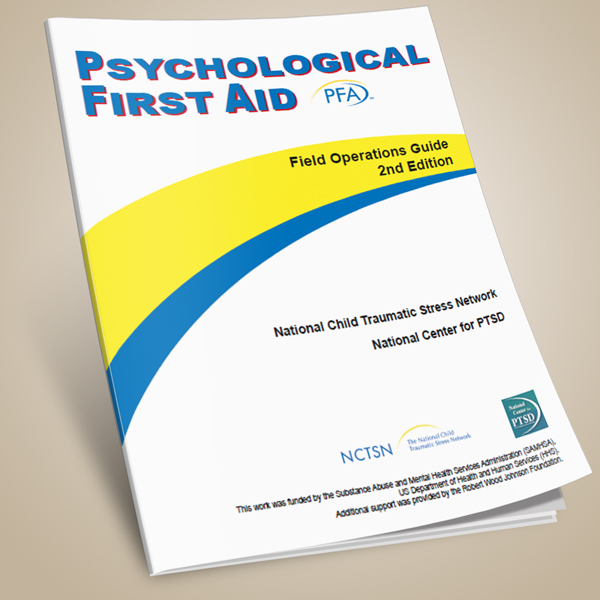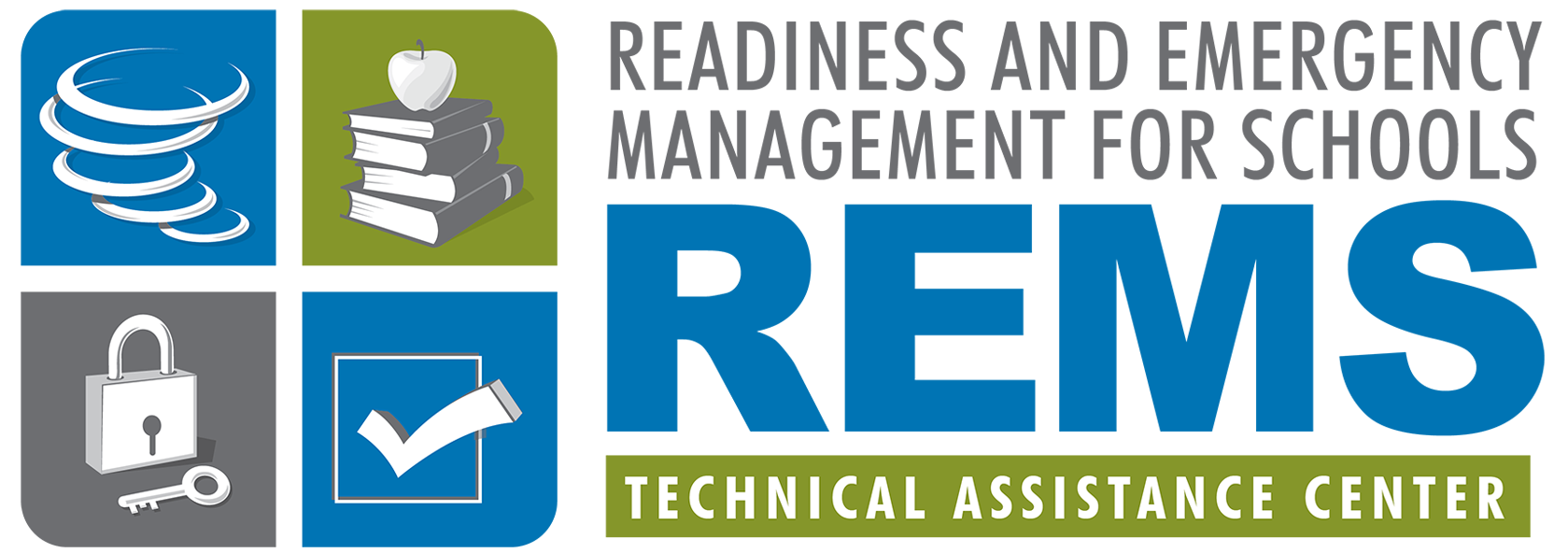Share Your Feedback
The REMS TA Center seeks your feedback to ensure that the Website is continually enhanced to meet your needs.

Access resources on planning for psychological first aid:
Live and Virtual Trainings by Request Planning for Your Education Agency’s Recovery From an Emergency IncidentPsychological First Aid (PFA)
PFA is an evidence-informed modular approach used by mental health and disaster response workers to help individuals of all ages in the immediate aftermath of disaster and terrorism. PFA is designed to reduce the initial distress caused by traumatic events and to foster short- and long-term adaptive functioning and coping.
PFA does not assume that all survivors will develop mental health problems or long-term difficulties in recovery. Instead, it is based on an understanding that disaster survivors and others affected by such events will experience a broad range of early reactions (e.g., physical, psychological, behavioral, spiritual). Some of these reactions will cause enough distress to interfere with adaptive coping and recovery may be helped by support from compassionate and caring disaster responders.
PFA is designed for delivery by mental health and other disaster response workers who provide early assistance to affected children, families, and adults as part of an organized disaster response effort. These providers may be embedded in a variety of response units, including first responder teams, the ICS, primary and emergency health care, incident crisis response teams, faith-based organizations, Community Emergency Response Teams (CERT), Medical Reserve Corps, the Citizens Corps, and other disaster relief organizations.
Basic objectives of PFA are:
- Establish a human connection in a non-intrusive, compassionate manner.
- Enhance immediate and ongoing safety and provide physical and emotional comfort.
- Calm and orient emotionally overwhelmed or distraught survivors.
- Help survivors tell you specifically what their immediate needs and concerns are, and gather additional information as appropriate. Offer practical assistance and information to help survivors address their immediate needs and concerns.
- Connect survivors as soon as possible to social support networks, including family members, friends, and neighbors.
- Support adaptive coping, acknowledge coping efforts and strengths, and empower survivors; encourage adults, children, and families to take an active role in their recovery.
- Provide information that may help survivors cope effectively with the psychological impact of disasters.
- When appropriate, link the survivor to another member of a disaster response team or to local recovery systems, mental health services, public-sector services, and organizations.
PFA is designed for delivery in diverse settings. Mental health and other disaster response workers may be called upon to provide PFA in:
- General population shelters
- Special need shelters
- Field hospitals and medical triage areas
- Acute care facilities (e.g., emergency departments)
- Staging areas or respite centers for first responders or relief workers
- Emergency operations centers
- Crisis hotlines or phone banks
- Mobile dining facilities
- Disaster assistance service centers
- Family reception and assistance centers
- Homes
- Businesses
- Other community settings
Content taken from Psychological First Aid Field Operations Guide http://www.nctsn.org
Training on Psychological First Aid
PFA Training can be provided face-to-face or online. The online version (http://learn.nctsn.org/) is vastly utilized and is a 6-hour interactive course that puts the participant in the role of a provider in a post-disaster scene. This professionally narrated course is for individuals new to disaster responses who want to learn the core goals of PFA, as well as for seasoned practitioners who want a review. It features innovative activities, video demonstrations, and mentor tips from the nation’s trauma experts and survivors. PFA online also offers a Learning Community where participants can share about experiences using PFA in the field, receive guidance during times of disaster, and obtain additional resources and training.
The Psychological First Aid: Field Operations Guide provides information for adults, families, first responders, disaster relief workers, crisis counselors, and volunteers to help survivors immediately in the aftermath of a traumatic event. Available online at http://www.nctsn.org , the guide describes key steps for providing PFA including how to approach someone in need, how to talk to them, how to help stabilize someone, and how to gather information. Appendices include resources about service delivery sites and settings, provider care, and worksheets and handouts.
Following disasters or emergencies, the PFA Mobile app can assist responders who provide PFA) to adults, families, and children. Materials in PFA Mobile are adapted from the Psychological First Aid Field Operations Guide (2nd Edition). (http://www.nctsn.org) (http://www.ptsd.va.gov)
The app allows responders to:
- Read summaries of the 8 core PFA actions.
- Match PFA interventions to specific stress reactions of survivors.
- Get mentor tips for applying PFA in the field.
- Self-assess to determine their own readiness to conduct PFA.
- Assess and track survivors’ needs to simplify data collection and referrals.
Psychological First Aid – Field Operations Guide http://www.nctsn.org


